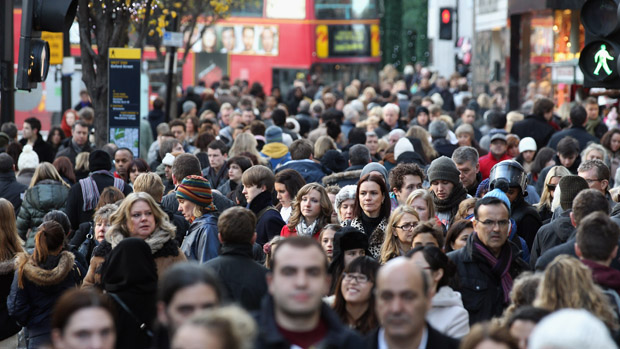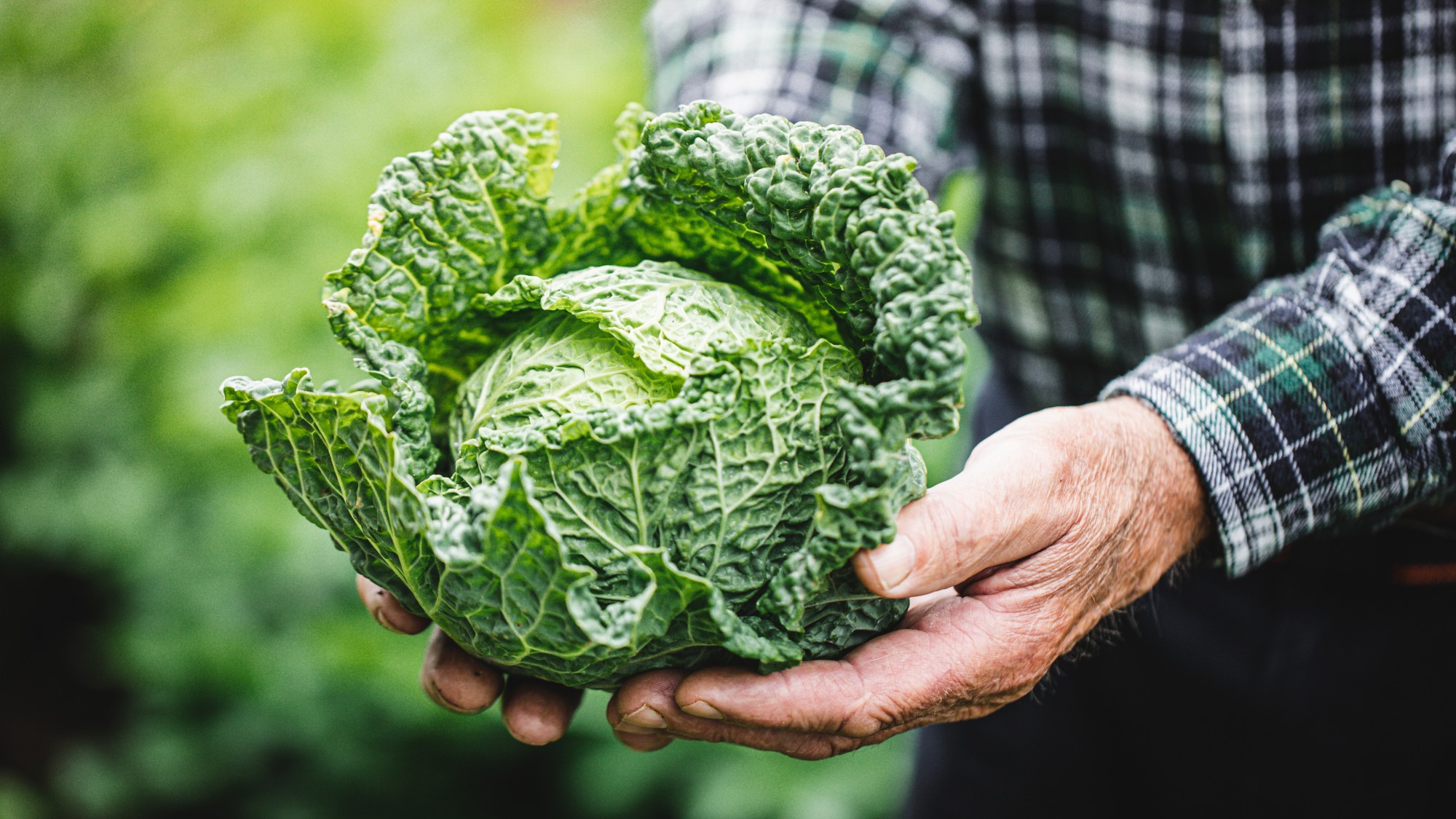Retail sales defy 'overdone' fears of spending squeeze
July's food sales bounce back, making up for falls in other areas

A free daily email with the biggest news stories of the day – and the best features from TheWeek.com
You are now subscribed
Your newsletter sign-up was successful
'Free-spending Brexit tourists' boost UK high street
13 January
Sterling's slump since the Brexit vote has triggered a massive surge in UK sales, with scores of foreign shoppers cashing in on the weak pound.
A report from payments group Worldpay reveals £725m was spent using foreign credit or debit cards on Britain's high streets throughout December, a rise of 22 per cent year-on-year.
The Week
Escape your echo chamber. Get the facts behind the news, plus analysis from multiple perspectives.

Sign up for The Week's Free Newsletters
From our morning news briefing to a weekly Good News Newsletter, get the best of The Week delivered directly to your inbox.
From our morning news briefing to a weekly Good News Newsletter, get the best of The Week delivered directly to your inbox.
This means a revenue increase of £130m for UK retailers, who are otherwise facing pressures from price deflation and the rapid rise in online shopping.
Worldpay chief marketing officer James Frost says: "Bricks and mortar retailers have not had things all their own way this Christmas, with the latest reports suggesting UK consumers are increasingly doing the bulk of their shopping online.
"So the influx of free-spending tourists we saw in December will have been a welcome boost for retailers looking to balance the books."
A key reason for the rise in tourists' spending power is the pound's nosedive since June, which has left it 22 per cent below its December 2015 level, says City AM.
A free daily email with the biggest news stories of the day – and the best features from TheWeek.com
Overseas buyers are getting more pounds for their local currency and have more money to spend. The weaker pound also means coming to the UK is cheaper than it was last year.
But retailers warn sterling's positive upshot is unlikely to hold out.
Import prices, for example, are going up, increasing costs for producers and retailers who now face the conundrum of whether to take the hit themselves or pass it on to consumers.
Some of these costs will probably be filtered through to prices. The Bank of England estimates inflation could rise to three per cent this year, squeezing consumer spending power.
Brits' spending at fastest rate for two years
09 January
UK consumers were spending at their fastest rate for two years in the final three months of last year, says credit card provider Visa.
Although the amount consumers splashed out dropped 2.3 per cent compared to the massive total for November, which included bumper Black Friday sales, spending rose by an average of 2.8 per cent a month over the fourth quarter.
In December alone, spending was still 2.6 per cent higher year-on-year, led by a 5.5 per cent rise in online purchasing.
Spending in physical shops rose by a more marginal 0.7 per cent, emphasising the continuing pressure being brought on the high street by the relentless rise in internet shopping.
A report from accountants BDO found bricks and mortar sales dipped 0.1 per cent last year.
Visa's report provides further evidence of the trend for consumers to divert their resources towards leisure activities and away from shopping.
"Spending rose year-on-year on hotels, restaurants, bars, recreation and culture… It fell for clothing, footwear and household goods," says The Guardian.
Visa's report, compiled by IHS Insight consultancy, is based on money spent using its credit and debit cards, which account for around a third of all consumer spending in the UK.
However, concern has been expressed over the way this ever-increasing spending is being financed, with unsecured consumer credit increasing at its fastest rate in 11 years.
Total unsecured debt rose to £349bn in the third quarter of 2016, a record high and well above the £290bn peak prior to the 2008 financial crisis, according to figures compiled by the Trades Union Congress.
Experts also believe the increased spending, together with the boost this gives to the economy, will not last, arguing real incomes will be squeezed by the rise in import costs caused by sterling's slump following the Brexit vote.
IHS Markit economist Annabel Fiddes said: "The UK economy remains in a strong overall position to support expenditure growth into 2017.
"However, rising inflationary pressures could squeeze spending power, and, along with Brexit-related uncertainty, this could soften the overall growth trajectory of household spending."
Retail sales surge in run-up to Christmas
21 December
Retail sales have picked up pace as we approach Christmas, giving a festive boost to retailers and reinforcing predictions for strong economic expansion in the fourth quarter.
But the Confederation of British Industry, which published the data, also warned that a sales slowdown is looming in 2017 as the weak pound makes imports more expensive and sends inflation soaring.
The trade body also issued a call for a "smooth" Brexit process with a deal that maintains "barrier-free" trading, hinting at a strong preference for an agreement that retains the UK's full membership of the EU single market.
Its retail figures, covering the three weeks up to 13 December and including the Black Friday sales, showed a net balance of 35 per cent of retailers saw sales increase relative to the same period last year.
That marks the best annual performance in any month since September 2015, says the BBC.
Wholesalers enjoyed their best results for 18 months, grocers their biggest rise in just over two years, and clothing retailers also posted strong figures in what has been an up-and-down year.
Official sales figures published by the government's statistics body last week showed consumer spending jumped 5.9 per cent in November compared to last year.
Overall, these figures accord with the general view of an economy that is proving resilient in the face of Brexit uncertainty and that is widely expected to post growth of about 0.5 per cent for the final three months of the year.
But the CBI warned confidence will begin to wane next year, as the pound's crash since the EU referendum sends inflation surging towards three per cent and squeezes spending power.
Surveyed retailers are predicting weaker sales from January onwards and say they plan to "cut back orders with suppliers", says Sky News.
Alongside the data release, the CBI issued a call for a Brexit deal built around tariff-free trading with "minimal" regulatory barriers and an immigration system that allows businesses to bring in necessary labour and skills from overseas.
Ministers have pledged to prioritise controlling immigration, putting membership of the single market in doubt – but say they will seek the "best possible access" to the single market.
Consumer spending at 'recession levels'
12 July
Consumer spending has fallen to levels not seen since the deep recession that following the financial crisis, The Guardian reports.
A monthly survey of retail sales from the British Retail Consortium and KPMG found that total takings from shop and online sales were up 0.5 per cent for the three months to June compared to the first quarter and 1.2 per cent compared to 2015.
June saw a 0.2 per cent rise compared to last year, but a fall of 0.5 per cent in like-for-like figures that strip out the effect of increased capacity.
At first, the data appear to reinforce the widespread view that the EU referendum had caused economic activity to dip.
Surveys published in the past two weeks revealed that construction activity swung into contraction and that growth in the dominant service sector declined sharply before the 23 June vote. Think-tank the National Institute of Economic and Social Research believes overall economic output might have fallen.
But the BRC report argues it is too early to see a Brexit effect and instead blames the unseasonably wet weather for the June drop in sales.
"With May sunshine a distant memory… summer wardrobes remained bare as sales of women’s fashion and footwear plummeted following one of the wettest and dullest starts to a UK summer since records began," David McCorquodale of KPMG said.
Barclaycard sales figures emphasise the claim that shoppers have been relatively unmoved by the referendum result, says the Daily Telegraph.
Total spending by the firm's customer base grew 3.6 per cent over the past quarter, although spending in pubs and restaurants fell slightly after the England football team crashed out of Euro 2016. In the week after the referendum, Barclaycard reported spending rose 2.1 per cent.
"The early indication is that the majority of consumers avoided a knee-jerk reaction," said managing director Paul Lockstone.
Consumers shrug off Brexit fears as spending rises
07 June
Consumers appear to be "less affected" than companies by the uncertainty surrounding the EU referendum on 23 June, with the latest British Retail Consortium (BRC) figures showing that spending rose last month, according to The Guardian.
Figures published by the group yesterday reveal that overall retail sales in the UK last month rose 1.4 per cent year-on-year. After two months of decline, this is "in line with the 12-month average of 1.5pc," Helen Dickinson, BRC chief executive, told the Daily Telegraph.
Separate figures from Barclaycard also suggest consumer spending rebounded in May after two months of weak growth, rising 3.6 per cent compared to a year earlier.
There are some strong numbers behind the headline BRC total. The warmer weather has spurred a near-14 per cent surge in online sales, with paddling pools, outdoor toys and clothes proving particularly popular.
There is good news even in the troubled grocery sector, which saw a 0.3 per cent increase in food sales, despite prices declining at an annual rate of around 1.5 per cent.
Joanne Denney-Finch, the chief executive of market researchers IGD, which compiled the BRC's food figures, said she was "encouraged" by the sales rise and that the upcoming Euro 2016 tournament should boost the sector further.
"Big international football tournaments are usually good for food and drink sales and this time there are three UK teams to support," she said.
All in all, the figures paint a positive picture of consumer confidence in stark contrast to that of the business community. A [3] survey by BDO suggested investment was "flatlining" as fears grow that the UK will vote to leave the European Union.
A number of experts have warned that post-Brexit uncertainty could hit the economy, costing jobs and undermining wage growth. Prime Minister David Cameron has also said a slump in the pound could make goods more expensive and cost families £220 a year.
Economists believe consumer sentiment remains "brittle" and that the EU vote could prompt volatile retail sales trends in the coming months.
"While consumers have not gone completely into their shell, they do seem overall to be more cautious at the moment as concerns and uncertainties over the economic situation and outlook are magnified by the looming 23 June referendum," said Howard Archer of IHS Global Insight.
-
 Can Keir Starmer save the Chagos deal?
Can Keir Starmer save the Chagos deal?Today's Big Question Opponents confident they can scupper controversial agreement as PM faces a race against time to get it over the line
-
 China and the rise of the humanoid robots
China and the rise of the humanoid robotsThe Explainer The country’s ‘bustling’ robotics industry is dominating the global market, though experts are split on how concerned we should be
-
 The cabbage comeback
The cabbage comebackThe Week Recommends Gone are the days of ‘WWII boiled cabbage recipes’. The humble vegetable is enjoying a resurgence